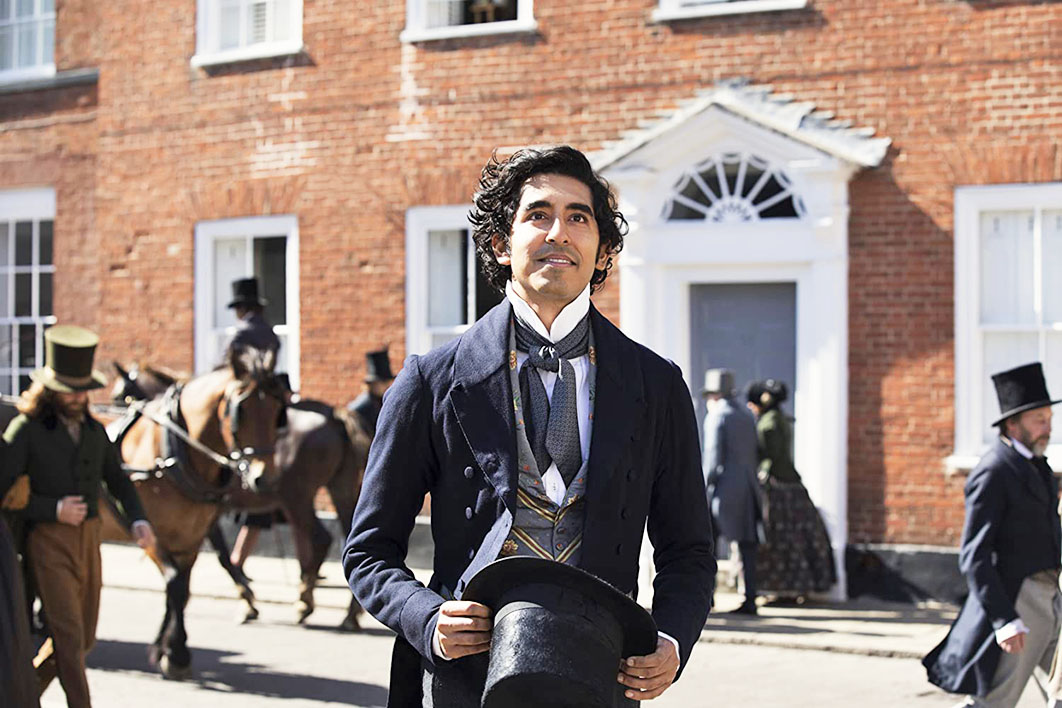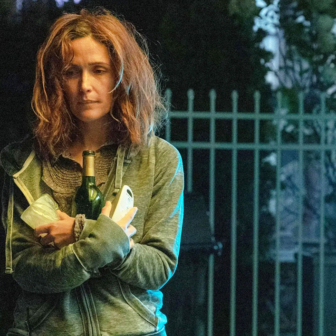When it comes to adapting literary works to film, I have never favoured slavish reverence for the original, however much I’ve admired the antecedent work. So when I hear complaints about a film’s failure to be “faithful” to, say, Austen or Dickens, I can’t help thinking that, while fidelity is great for relationships, when it comes to adaptation I prefer playing around.
Nevertheless, I was startled on hearing that Armando Iannucci was tackling Dickens. What could the creator of that lethally witty exposé of political machination, In the Loop (2009), and the brilliant satirical account of The Death of Stalin (2017) possibly have in common with the beloved Victorian novelist? Now, on viewing The Personal History of David Copperfield, I find that the answer is “everything” — well, almost. Both are capable of excess, of being outrageous in a good cause, and Iannucci seems to have found a visual and narrative style that can work with comparable vividness and fluency.
One of the innovative aspects of this version of the 1850 classic is the diverse casting, with rising actor Dev Patel as the adult David and several other key participants of African or Asian origin. This may well be Iannucci’s gesture to the changing ethnic demography of contemporary Britain, and it works spectacularly in setting up David Copperfield as a protagonist often at odds with a difficult world. In the wake of his 2008 feature debut in the much-Oscared Slumdog Millionaire (2008), Patel has become a major figure in such successful recent films as Lion (2017).
Here, Patel literally commands the stage when, in the opening sequence set in a large, noisy theatre, he appears to introduce his life story to the audience, echoing Dickens’s opening sentences with “Whether I shall turn out to be the hero of my own life…” and “To begin my life with the beginning of my life…” He then joins his mother at the scene of his birth, which is followed by the arrival of Aunt Betsey Trotwood (Tilda Swinton), who loses interest and leaves when the baby proves to be a boy, and by a montage of his early life.
After this daring opening, the film never looks back, penetrating the heart of the novel while persistently offering its own take. At the same time, it seems in one sense utterly Dickensian in its procedures: Patel’s telling the story of his life is an incarnation of the novel’s first-person narrator who can’t have been expected to know everything he recalls. What matters is how his recollections and imaginative recreations have informed the story he is telling the theatre audience via an audiovisual style as wildly evocative as Dickens’s prose.
Adapting an 877-page novel with a huge list of characters to a two-hour movie obviously poses challenges. But though I hadn’t read the book for decades the film conjured up most of the key phases I recalled of David’s life and most of the often-bizarre characters. Iannucci, as both director and co-screenwriter, relies on his collaborators behind the camera as well as his cast to ensure we register David’s changing environments.
The happiness of his earliest years with widowed mother Clara (Morfydd Clark) and loyal housekeeper Peggotty (Daisy May Cooper), not to forget the holiday with Peggotty’s family in their home made of an upturned boat, is brutally interrupted when his mother marries the tyrannical Murdstone (Darren Boyd), who sends David off to a harsh boarding school and then to work in the squalor of his — Murdstone’s — bottle factory.
All this, and a great deal more, is rendered vividly by Cristina Casali’s superb production design and Zac Nicholson’s evocative cinematography. Clearly differentiated interiors suggest David’s changing circumstances, and the exterior vistas of panoramic beauty offer not mere pictorialism but suggestions of David’s response to what the world may offer. Glorious long shots of the Yarmouth coast, for example, contrast with its cluttered wharves, and the Houses of Parliament, shown from Westminster Bridge, contrast with the city’s crowded and often sleazy streets.
Perhaps a little more might have been made of David’s schooldays, but essentially the film keeps its mind on how he is interpreting what he sees as he moves towards adulthood. The use of what seem to be his handwritten titles (“If I am a gentleman” and so on) and of Patel’s intermittent voiceover means that we never lose the sense that we are indeed witnessing a “personal history.” And when, following news of his mother’s death, he runs away from London seeking out his only living relative, Betsey Trotwood, and his life takes new turns in new places, the film registers this not so much with realism as with the reality of what it all means to David’s growing awareness of the world’s challenges.
If you are going to film David Copperfield, or perhaps any novel of Dickens, you need a bevy of character actors to register the vivid eccentricities of its personnel without divesting them of a degree of credibility. In this matter Iannucci has been very fortunate. The Miss Murdstone imagined by Dickens and recalled by the narrating David is an awesome presence in Gwendoline Christie’s grim-visaged frigidity; Tilda Swinton is a surprisingly more complex Betsey Trotwood than expected; Hugh Laurie makes Mr Dick’s kite-flying and obsession with King Charles’s severed head both comic and oddly touching; Ben Whishaw breathes Uriah Heep to hypocritical life; and Iannucci’s star from In the Loop, Peter Capaldi, is a matchless incarnation of Mr Micawber’s wild optimism.
Among the younger players, Rosalind Eleazar is a feisty, compelling Agnes Wickfield, contrasting with Morfydd Clark’s gently touching Clara Copperfield, who finds an echo in her later role of Dora Spenlow. The fact that she plays both leads one to reflect on what each may have had in common in their influences on David’s life.
Seeing the film has led me to embark on rereading the novel (surely a positive response to a film adaptation?), and again and again I am struck by how this or that sentence resonates with its audiovisual counterpart in Iannucci’s film. Having admired David Lean’s Great Expectations and Oliver Twist for decades, I can’t but feel that Dickens might have responded more enthusiastically to Iannucci’s Personal History of David Copperfield, his cinematic zest striking bells of recognition. •




